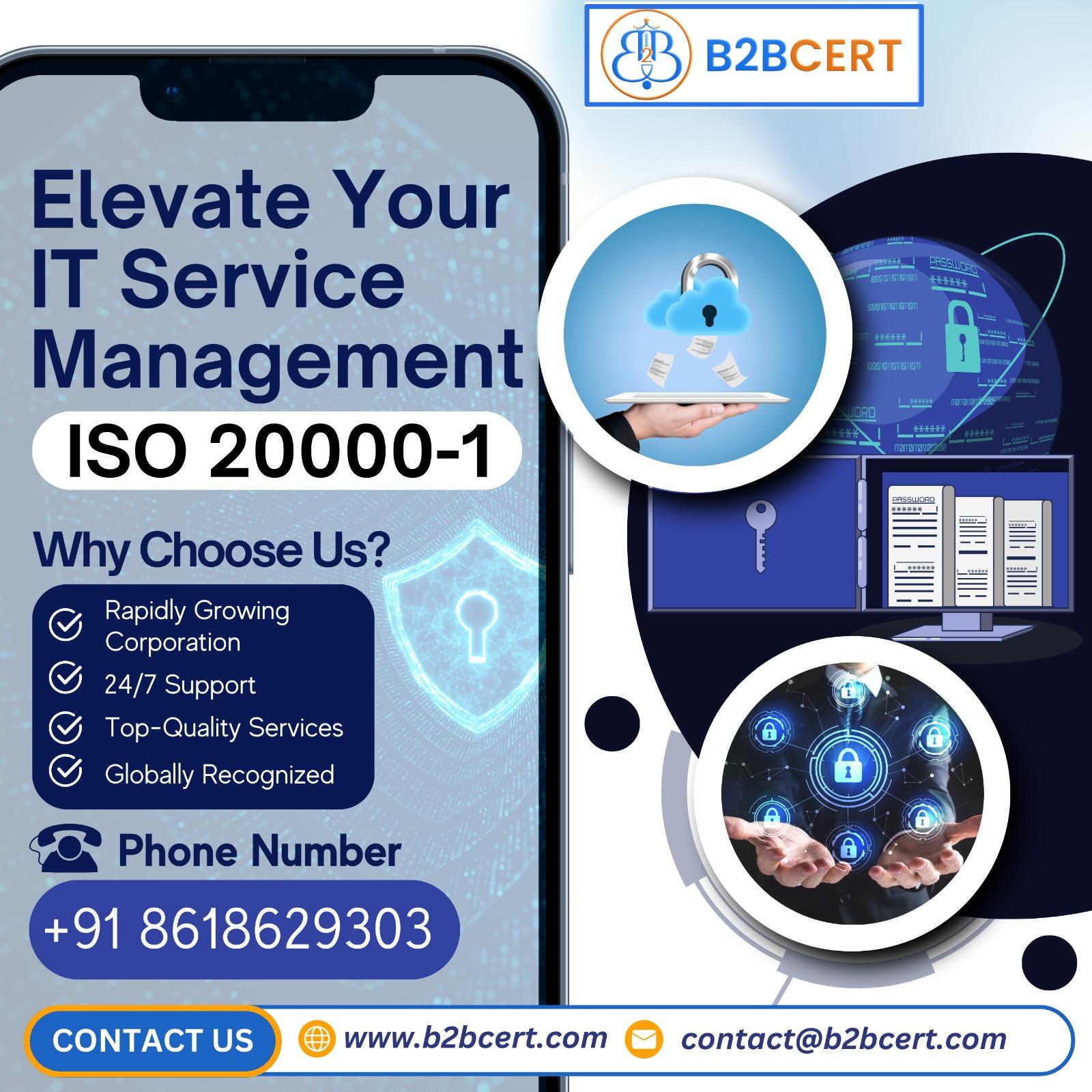How Does ISO 20000-1 Certification Impact Regulatory and Legal Compliance?

In today’s technology-driven environment, organizations rely heavily on IT services to manage operations, enhance customer satisfaction, and ensure seamless business continuity. However, with this dependence comes the growing need for compliance with regulatory and legal requirements related to data privacy, service delivery, and information security. One of the most effective ways to address these challenges is through ISO 20000-1 Certification — the international standard for IT Service Management (ITSM).
For businesses in competitive markets like Singapore, achieving ISO 20000-1 Certification in Singapore demonstrates a strong commitment to compliance, reliability, and continual improvement. Let’s explore how ISO 20000-1 helps organizations align with regulatory and legal mandates while enhancing operational excellence.
Understanding ISO 20000-1 Certification
ISO 20000-1 is a globally recognized standard that defines the requirements for establishing, implementing, maintaining, and continually improving an IT Service Management System (ITSMS). It focuses on delivering consistent, high-quality IT services that meet both business and customer requirements.
By obtaining ISO 20000-1 Certification in Singapore, organizations can ensure their IT processes are structured, measurable, and aligned with industry best practices. This certification is not just about technical efficiency—it also plays a crucial role in maintaining compliance with national and international regulations.
1. Strengthening Data Protection and Privacy Compliance
One of the key areas where ISO 20000-1 supports compliance is data protection. With stringent data privacy laws such as the General Data Protection Regulation (GDPR) and India’s Digital Personal Data Protection Act (DPDPA), organizations are required to manage personal data responsibly.
ISO 20000-1 requires organizations to implement robust processes for data management, including data handling, storage, and access control. By maintaining these standardized processes, businesses reduce the risk of non-compliance and avoid legal penalties.
For instance, ISO 20000-1 encourages defining clear service management policies and procedures that govern how data is processed and protected. This framework helps companies in Singapore ensure compliance with local and international data protection regulations.
2. Aligning with Legal and Contractual Obligations
Many industries—such as banking, healthcare, and telecommunications—must comply with sector-specific regulations. ISO 20000-1 certification provides a structured IT management approach that aligns with these legal and contractual obligations.
Through documentation control, risk management, and incident response processes, the certification ensures that service delivery adheres to applicable laws and client contracts. Organizations that engage with government agencies or multinational clients often find that having ISO 20000-1 certification simplifies compliance audits and contractual approvals.
ISO 20000-1 Consultants in Singapore can guide organizations through this alignment process by mapping ITSM requirements with existing regulatory frameworks, ensuring a smooth integration between compliance and business objectives.
3. Supporting Information Security and Cyber Compliance
Information security is a major component of legal and regulatory compliance. ISO 20000-1 complements standards like ISO 27001 (Information Security Management) by ensuring IT services are delivered securely and efficiently.
The certification requires organizations to define roles, responsibilities, and communication protocols for managing incidents and service disruptions. This structure ensures quick response to security threats, helping organizations meet legal obligations related to cybersecurity and data integrity.
For example, many data breach laws require timely reporting of incidents and corrective actions. With ISO 20000-1 in place, organizations already have an established process to manage, document, and report such events efficiently.
4. Enhancing Transparency and Audit Readiness
Regulatory compliance often involves demonstrating transparency and accountability to auditors and regulators. ISO 20000-1 emphasizes maintaining records, documentation, and monitoring systems for all IT service activities.
These detailed records serve as evidence during audits, showcasing that the organization consistently follows defined service management practices. Moreover, ISO 20000-1 encourages periodic internal audits and management reviews, ensuring continuous improvement and readiness for external inspections.
By availing ISO 20000-1 Services in Singapore, organizations can set up systematic internal audit processes, ensuring that all compliance requirements are proactively met and documented.
5. Reducing Legal Risks and Penalties
Non-compliance with regulations can result in hefty fines, reputational damage, and even operational restrictions. ISO 20000-1 mitigates these risks by ensuring that IT processes are compliant, well-monitored, and continually improved.
For example, failure to meet data retention or cybersecurity obligations can lead to violations of IT laws. With an ISO 20000-1 framework, organizations minimize such risks by maintaining compliance-focused policies, proper documentation, and clear escalation procedures for incidents.
Having ISO 20000-1 certification not only demonstrates a proactive compliance approach but also instills confidence among clients, partners, and regulators that the organization is managing its IT services responsibly.
6. Supporting Integration with Other Compliance Standards
ISO 20000-1 can be seamlessly integrated with other management system standards such as ISO 9001 (Quality Management), ISO 27001 (Information Security Management), and ISO 22301 (Business Continuity Management).
This integration ensures a unified approach toward compliance, where all processes—from quality assurance to information security—work in harmony. Organizations in Singapore can leverage ISO 20000-1 as a foundational framework to strengthen their overall compliance posture across multiple domains.
ISO 20000-1 Consultants in Singapore often help businesses create integrated management systems that simplify audit procedures and reduce duplication of compliance efforts.
Conclusion
In a regulatory environment that is constantly evolving, ISO 20000-1 Certification in Singapore serves as a strategic asset for organizations aiming to maintain compliance, reduce risk, and enhance IT service performance. The certification not only aligns IT operations with international standards but also ensures that all legal, contractual, and regulatory obligations are effectively addressed.
By partnering with experienced ISO 20000-1 Consultants in Singapore, businesses can streamline their certification process, implement best practices, and establish a culture of continuous improvement. With the right ISO 20000-1 Services in Singapore, companies can achieve compliance excellence while delivering efficient, secure, and high-quality IT services that meet global expectations.
- Art
- Causes
- Crafts
- Dance
- Drinks
- Film
- Fitness
- Food
- Spiele
- Gardening
- Health
- Home
- Literature
- Music
- Networking
- Other
- Party
- Religion
- Shopping
- Sports
- Theater
- Wellness
